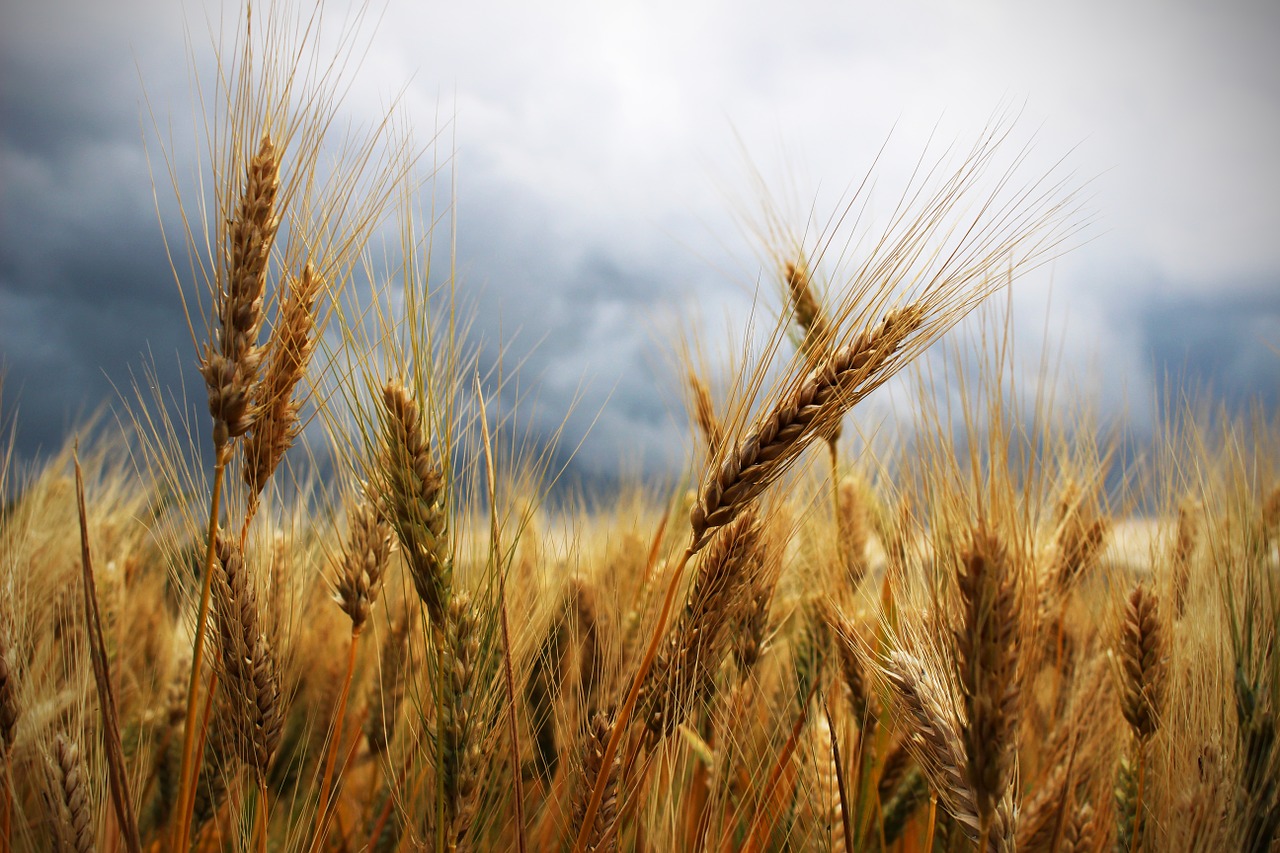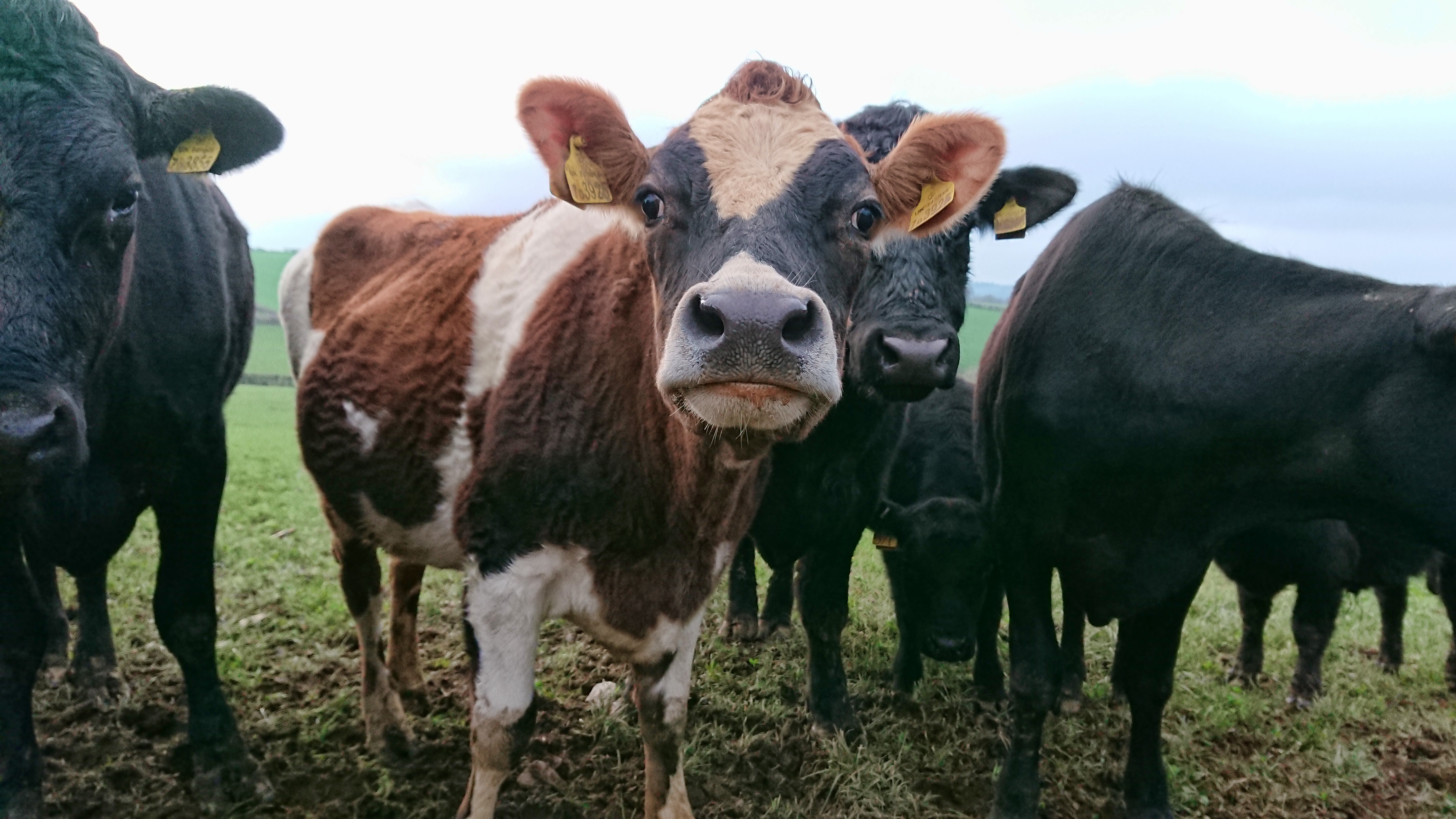
(Pixabay/CarlottaSilvestrini)
In my recent column, I underscored that when a priest offers the prayer to thank God for the "work of human hands," during the sacrament of Eucharist, it "includes Christ's memory of enslaved Africans who built the American system of free enterprise." Remembering the "work of human hands," is intimately interconnected with the "fruit of the earth," the whole of planetary biodiversity that form the very foundation of life. Yet our U.S. American way of life, including how and what we eat, is destroying the basis of life itself.
The "fruit of the earth" and "work of human hands" invites, nurtures and challenges us to be constantly transformed into God's intimate love for the whole of creation.
How sensitive are we to the whole of God's creation and the intimacy of planetary biodiversity? The "fruit of the earth" and "work of human hands," ought to call to mind, heart and soul the fact that as human beings we are inextricably embedded within, interconnected and interdependent with, the whole of the Earth's biodiversity.
However, our U.S. American way of life is destroying the fragile fabric of planetary biodiversity, humanity's most common good.
The summary report released May 6 from the Intergovernmental Science-Platform on Biodiversity and Ecosystem Services (IPBES), an independent, intergovernmental body comprising more than 130 member governments and often called the IPCC (Intergovernmental Panel on Climate Change) for biodiversity, finds that "nature is declining globally at rates unprecedented in human history — and the rate of species extinction is accelerating, with grave impacts on people around the world now likely."
Advertisement
Planetary biodiversity is "humanity's most important life-supporting safety net, that "is being stretched almost to breaking point" said professor Sandra Díaz of Argentina who co-chaired the global species assessment.
"The health of ecosystems on which we and all other species depend is deteriorating more rapidly than ever, says Robert Watson, chair of the IPBES. Finding that more than 1 million plant and animal species are threatened with extinction, and at a greater pace than ever in human history, the IPBES report warns: "We are eroding the very foundations of our economies, livelihoods, food security, health and quality of life worldwide."
"Through transformative change," the report signals that humanity still has the opportunity to conserve, restore and sustainably nurture nature's bounty so that the full complexity of global biodiversity may fully thrive.
How we eat food is a critical way pastoral leaders and people of faith can facilitate the kind of transformative change necessary to care for the fruits of God's creation. Eating is spiritually and morally tied to the church's sacramental celebration of Eucharist. Yet the way we consume food and the entire food system is a central way humanity is destroying the planet.
In its summary report for policymakers, IPBES cautions that although the food system is sufficient to satisfy global needs now, nearly one billion people are food insecure and diet-related disease drives 20 percent of premature mortality "related both to undernourishment and obesity."

(Unsplash/Marc Pell)
EAT-Lancet, a scientific commission and science-based global platform for food system transformation, released "Healthy Diets from Sustainable Food Systems: Food Planet Health," in January. The EAT-Lancet commission brings together 19 commissioners and 18 co-authors from 16 countries in diverse fields including health, agriculture, political science and environmental sustainability.
EAT-Lancet underscores how transformation toward healthy diets is fundamentally interconnected with the global food production system. Commission co-chair professor Walter Willett of Harvard University explains that "substantial dietary shifts" are necessary for humanity to change to healthy diets by 2050.
Willett stresses that "global consumption of fruits, vegetables, nuts and legumes will have to double, and consumption of foods such as red meat and sugar will have to be reduced by more than 50 percent. A diet rich in plant-based foods and with fewer animal source foods confers both improved health and environmental benefits."
The single largest driver of environmental degradation, explains EAT-Lancet co-chair Johan Rockström of the Potsdam Institute for Climate Impact, is global food production. Rockström is unambiguous about what should happen to care for planetary boundaries: "A radical transformation of the global food system is urgently needed."
The select committee proposal for the Green New Deal emphasizes that "eliminating greenhouse gas emissions from agricultural industries" and new investments in "local-scale agriculture" are critical for the global scale of transformation necessary to sustain Earth.
Food Tank, the thinktank for food, details how Green New Deal policies would facilitate a transition toward "resilient, fair, local and regional food systems that ensure good jobs and healthy food for all." They underscore how the food sector accounts for one-third of global greenhouse emissions. Half of that amount comes from meat and dairy factory farms.
Food Tank describes how massive meat and dairy farms "spew immense amounts of climate-harming methane, whose devastating short-term global warming impact is vastly underestimated in climate accounting frameworks."
The same industrial food system that generates climate harm also produces poverty, hunger and public health crises. Food Tank reminds us that the millions of people "who harvest our food and make our meals earn the lowest wages" — our brothers and sisters whose hands work to bring the fruit of the earth to our tables — too often live at or below poverty and "face serious health issues due to our food system's plethora of highly processed, unhealthy foods."
Simultaneously, economically rich nations' overconsumption of animal protein and sugar contribute to a public health threat of obesity that is "more serious than the opioid epidemic."
As Monika Hellwig eloquently elucidated in her classic The Eucharist and the Hunger of the World, consuming Eucharist and eating food for bodily sustenance intimately interconnect our human hunger for food, connection, community and ultimately God's love for all. The sacramental practice of Eucharist, as Hellwig and many other theologians and ecologists remind us, ought to call to mind, heart and soul all people whose underpaid or unpaid labor make our consumption of food possible.

(Pixabay/dh_creative)
More importantly, if we truly glorify and graciously thank God for the "fruit of the earth," and live Christ's compassion at the heart of table fellowship, then we will, if we have not already, be part of the transformative change the world needs now.
Transformative change begins by drastically reducing our consumption of animal protein and sugar while increasing our consumption of fruits, vegetables, nuts and legumes by 50 percent. As we change ourselves through healthier diets, we can contribute to the indispensable collective work of transforming our food system for the full thriving of planet Earth and all of its biodiversity.
Pope Francis concludes his encyclical "Laudato Si', on Care for Our Common Home" with a prayer for the Union of Creation. The prayer ends:
"The poor and the earth are crying out. O Lord, seize us with your power and light, help us to protect all life, to prepare for a better future, for the coming of your Kingdom of justice, peace, love and beauty. Praise be you! Amen."
May this be our work and prayer. This means changing what and how we eat and transforming the food system in ways that sustain the Earth. Then we may yet offer authentic thanks for "the fruit of the earth and work of human hands" that transforms us ever more deeply into God's intimate love for the whole of planetary biodiversity.
[Alex Mikulich is a Catholic social ethicist.]
Editor's note: We can send you an email notice every time a Decolonizing Faith and Society column is posted to NCRonline.org so you won't miss it. Go to this page, enter your address and check the boxes for the ones you want: Newsletter sign-up.







